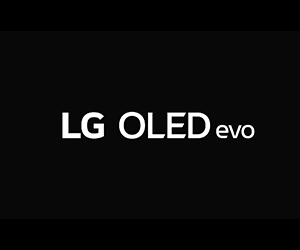Controversial Vehicle Price Surge in Iran
Econews: Asre khodro- The recent surge in prices for assembled vehicles(CKD) and CBU in Iran has sparked widespread debate among consumers and market activists.
Amirhossein BARKHORDARI
According to an investigation by "Asrekhodro.com", the price increases, ranging from 7% to 12% for most assembled vehicles, stem from multiple factors. Key among these are the shift in the exchange rate used for calculating import duties—from the subsidized NIMA rate (28,500 IRR) to the free-market rate (69,000 IRR)—along with rising insurance and registration costs, and a new 1% surcharge on the final vehicle price allocated for ambulance purchases under Clause (C) of Article 6 of the Government’s budget Plan for new year.
This price hike, while part of Iran’s annual trend of vehicle price adjustments, is particularly notable this year due to the abrupt elimination of the NIMA exchange rate—a move unprecedented in recent years. This decision signals a reduction in government support for importing vehicle parts and vehicles, aiming to boost state revenue, which has led to price increases exceeding consumer expectations.
These additional costs, labeled as “government dues,” apply to vehicles scheduled for delivery in 1404(from march 21st 2025). Customers are required to pay these fees to automakers, who then settle them with the government. However, the lack of clear communication regarding these charges has caused significant confusion and mistrust among consumers. The price hikes affect all importers and assemblers, with new prices gradually announced as delivery notices are issued. Notably, high-volume manufacturers like MVM (Chery’s local partner) have faced heightened scrutiny, despite some competitors implementing even steeper increases. Importantly, these price adjustments are solely driven by government-imposed costs, with assemblers and importers adding no additional margins. The funds are directly transferred to the state treasury, meaning consumer grievances should target the government rather than automakers, who act merely as intermediaries.
Some customers who signed fixed-price contracts in 1403(before march 21st) argue they should be exempt from these additional costs. However, fixed prices in contracts typically cover only the vehicle’s production cost, not unforeseen government dues for 1404, which automakers could not anticipate during last year’s pricing. The government’s delay in clarifying these dues has further complicated the process. The Regulatory Organization has unfairly criticized automakers without acknowledging the government’s role, a stance that appears biased. The government seems content to let automakers bear the brunt of consumer backlash while avoiding accountability for its own policies.
To mitigate the impact on customers, some automakers have offered installment plans for these dues, despite being required to pay the government upfront in cash. This gesture reflects an attempt to support consumers amid economic challenges, yet the government remains silent, seemingly benefiting from hiding behind assemblers and importers. Meanwhile, certain state-affiliated media outlets have fueled criticism against automakers without addressing the government’s role, a tactic that lacks justification.
The shift from the NIMA to the free-market exchange rate effectively minimizes government support for vehicle imports and assembly. While assemblers and importers have not raised their official prices, the government has not compromised on its revenue, contributing to market instability. The focus of some media on specific brands, such as MVM, appears to be a deliberate effort to deflect public attention from the government’s role.
To avoid future misunderstandings, customers should carefully review contract terms, and automakers must ensure sales agents clearly explain any unusual clauses. For instance, Clause 49 in some MVM (Modiran Vehicle Manufacturing) contracts, even for fixed-price agreements, states: “The contract price is subject to the latest decisions by relevant authorities regarding government duties and taxes, and upon notification, the increased amount will be reflected in the sales invoice, which the customer is obligated to pay.” Customers with this clause in their contracts are required to cover updated government dues per new regulations. This clause was not highlighted at the time of signing due to the government’s delay in announcing the dues, further underscoring governmental inefficiencies.
However, customers whose vehicle deliveries were scheduled for 2024 but delayed to 2025 without their knowledge have legitimate grounds for complaint. These customers should not bear the additional 2025 dues, as the delay is attributable to the automaker. This issue highlights a significant flaw in the delivery process for which automakers must be held accountable.
To prevent recurring controversies, greater coordination between the government and automakers is essential to ensure transparency in announcing government dues and clarifying contract terms. Such measures are critical to maintaining consumer trust in Iran’s automotive market.
 اکو ایران | ECO IRAN
اکو ایران | ECO IRAN
 ترکیه | Turkiye
ترکیه | Turkiye
 آذربایجان| Azerbaijan
آذربایجان| Azerbaijan
 ترکمنستان|Turkmenistan
ترکمنستان|Turkmenistan
 تاجیکستان|Tajikistan
تاجیکستان|Tajikistan
 قزاقستان |Kazakhstan
قزاقستان |Kazakhstan
 قرقیزستان |Kyrgyzstan
قرقیزستان |Kyrgyzstan
 ازبکستان |Uzbekistan
ازبکستان |Uzbekistan
 افغانستان |Afghanistan
افغانستان |Afghanistan
 پاکستان | Pakistan
پاکستان | Pakistan
 بانک مرکزی
بانک مرکزی
 بانک ملّی ایران
بانک ملّی ایران
 بانک ملّت
بانک ملّت
 بانک تجارت
بانک تجارت
 بانک صادرات ایران
بانک صادرات ایران
 بانک ایران زمین
بانک ایران زمین
 بانک پاسارگاد
بانک پاسارگاد
 بانک آینده
بانک آینده
 بانک پارسیان
بانک پارسیان
 بانک اقتصادنوین
بانک اقتصادنوین
 بانک دی
بانک دی
 بانک خاورمیانه
بانک خاورمیانه
 بانک سامان
بانک سامان
 بانک سینا
بانک سینا
 بانک سرمایه
بانک سرمایه
 بانک کارآفرین
بانک کارآفرین
 بانک گردشگری
بانک گردشگری
 بانک رسالت
بانک رسالت
 بانک توسعه تعاون
بانک توسعه تعاون
 بانک توسعه صادرات ایران
بانک توسعه صادرات ایران
 قرض الحسنه مهر ایران
قرض الحسنه مهر ایران
 بانک صنعت و معدن
بانک صنعت و معدن
 بانک سپه
بانک سپه
 بانک مسکن
بانک مسکن
 رفاه کارگران
رفاه کارگران
 پست بانک
پست بانک
 بانک مشترک ایران و ونزوئلا
بانک مشترک ایران و ونزوئلا
 صندوق توسعه ملّی
صندوق توسعه ملّی
 مؤسسه ملل
مؤسسه ملل
 بیمه مرکزی
بیمه مرکزی
 بیمه توسعه
بیمه توسعه
 بیمه تجارت نو
بیمه تجارت نو
 ازکی
ازکی
 بیمه ایران
بیمه ایران
 بیمه آسیا
بیمه آسیا
 بیمه البرز
بیمه البرز
 بیمه دانا
بیمه دانا
 بیمه معلم
بیمه معلم
 بیمه پارسیان
بیمه پارسیان
 بیمه سینا
بیمه سینا
 بیمه رازی
بیمه رازی
 بیمه سامان
بیمه سامان
 بیمه دی
بیمه دی
 بیمه ملت
بیمه ملت
 بیمه نوین
بیمه نوین
 بیمه پاسارگاد
بیمه پاسارگاد
 بیمه کوثر
بیمه کوثر
 بیمه ما
بیمه ما
 بیمه آرمان
بیمه آرمان
 بیمه تعاون
بیمه تعاون
 بیمه سرمد
بیمه سرمد
 بیمه اتکایی ایرانیان
بیمه اتکایی ایرانیان
 بیمه امید
بیمه امید
 بیمه ایران میهن
بیمه ایران میهن
 بیمه متقابل کیش
بیمه متقابل کیش
 بیمه آسماری
بیمه آسماری
 بیمه حکمت صبا
بیمه حکمت صبا
 بیمه زندگی خاورمیانه
بیمه زندگی خاورمیانه
 کارگزاری مفید
کارگزاری مفید
 کارگزاری آگاه
کارگزاری آگاه
 کارگزاری کاریزما
کارگزاری کاریزما
 کارگزاری مبین سرمایه
کارگزاری مبین سرمایه




















































